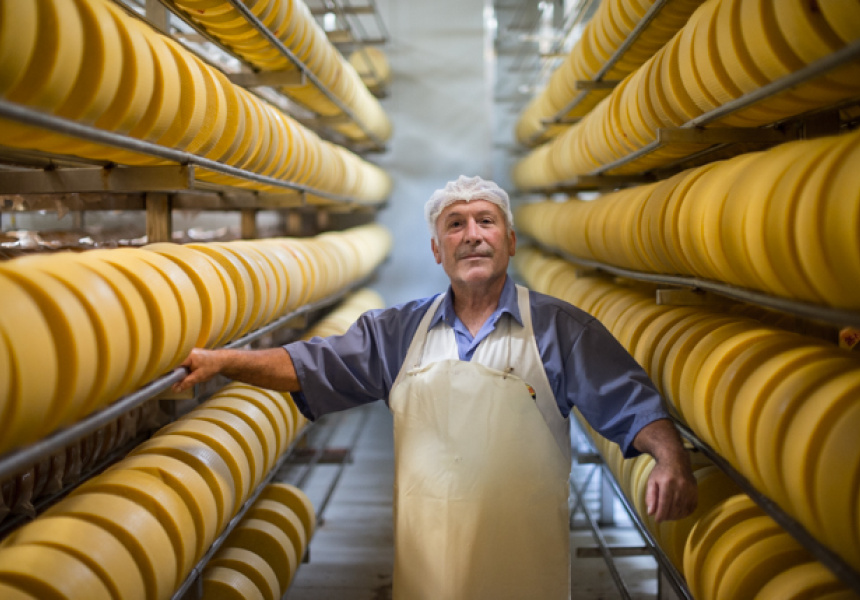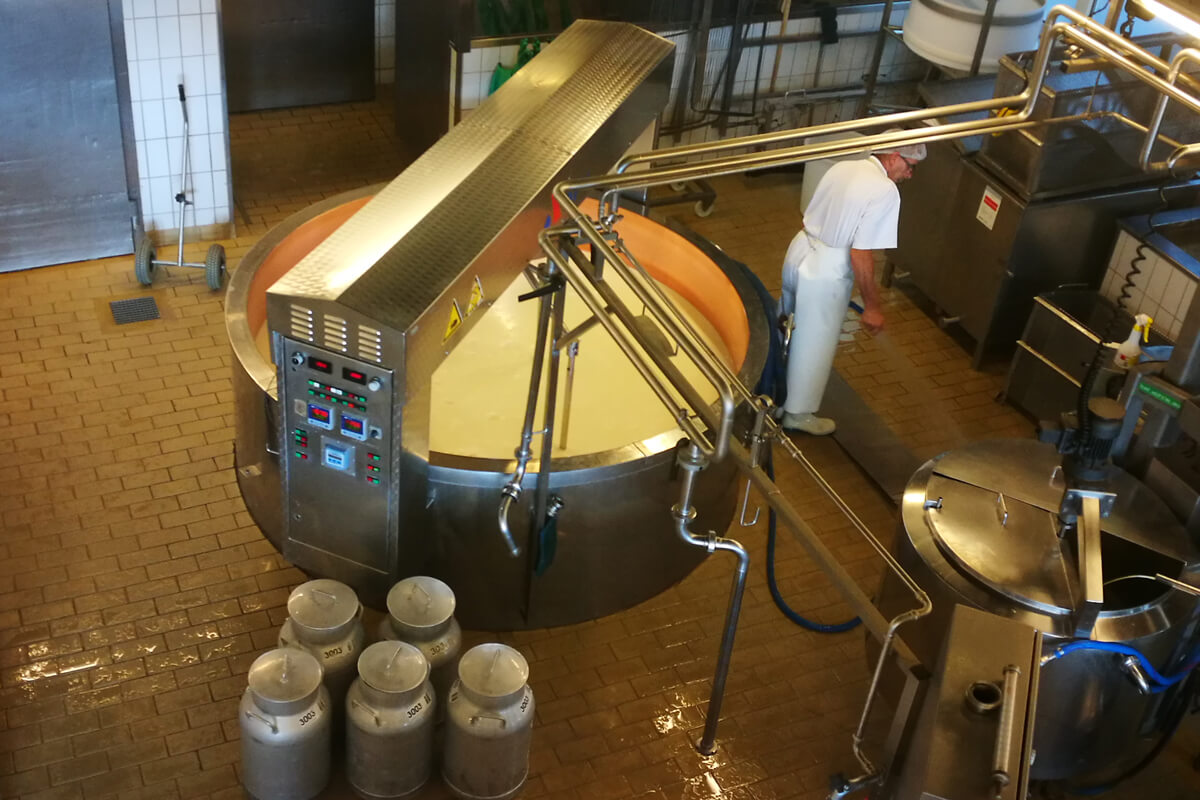Cheese Store Melbourne: Your Go-To Destination for All Things Cheese
Cheese Store Melbourne: Your Go-To Destination for All Things Cheese
Blog Article
A Thorough Appearance at Cheese Manufacturing: Components, Approaches, and the Future of Craftsmen Cheeses
The complex process of cheese manufacturing is an interesting merging of art and scientific research, where premium milk, rennet, and certain microbial cultures offer as fundamental aspects. As the industry progressively prioritizes sustainability and transparency, the future of artisan cheeses assures to reflect both heritage and progress.
Key Components in Cheese Production
A selection of crucial ingredients play a pivotal duty in cheese manufacturing, each adding to the final product's flavor, texture, and personality. The primary active ingredient in cheese is milk, which can originate from different resources, consisting of cows, goats, and sheep - cheese store melbourne. The kind of milk used considerably influences celebrity's preference and uniformity; as an example, cow's milk typically yields creamier cheeses, while goat's milk typically generates tangy varieties
An additional important active ingredient is rennet, an enzyme used to curdle the milk, separating it right into curds and whey. The source of rennet can be animal, veggie, or microbial, each presenting distinctive features to the cheese.
Salt not only boosts the taste however likewise acts as a preservative, preventing the growth of unwanted microorganisms. In addition, different flavoring representatives, such as natural herbs, spices, or also smoked wood, can be added to develop one-of-a-kind artisanal cheeses. With each other, these components create the foundation of cheese production, establishing the stage for varied and rich cheese selections.
Standard Cheese-Making Techniques
Using conventional cheese-making strategies, artisans around the globe protect classic techniques that have actually been passed down via generations. These methods commonly highlight using top notch, locally sourced milk, which is central to the unique flavors and textures of artisanal cheeses. The procedure usually starts with the cautious home heating of milk, followed by the enhancement of cultures and rennet to promote coagulation.
When the curds create, they are reduced, permitting whey to drain, an essential step that affects moisture content and structure. The curds are after that gently stirred and prepared to accomplish the wanted suppleness. Afterward, they are drained and pushed right into mold and mildews. Salting is an important element of this procedure, boosting flavor while likewise working as a chemical.
Aging, or affinage, is an additional crucial component, during which cheeses develop their characteristic aromas and preferences. Craftsmens might use specific aging environments, utilizing moisture and temperature level controls to improve the cheese's profile. The commitment to these traditional approaches not just sustains regional economic climates however also adds to the abundant variety of cheese selections located globally, celebrating social heritage and artisanal workmanship.
Modern Advancements in Cheese Manufacturing
Just how have technological improvements transformed cheese production over the last few years? The combination of contemporary technology has actually changed both the effectiveness and quality of cheese manufacturing. Automation in different stages of the process-- from curd development to packaging-- has actually improved uniformity while lowering labor costs. As an example, automated curd cutting and mixing systems enable specific control over appearance and wetness degrees, vital elements affecting the end product.
Additionally, improvements in microbiology have allowed cheesemakers to pick specific bacterial cultures and enzymes, maximizing flavor profiles and boosting shelf life. Making use of sensor technology for monitoring fermentation conditions has additionally become widespread, enabling real-time modifications to keep optimum environments for cheese aging.

These advancements not only boost the top quality and sustainability of cheese production however additionally encourage craftsmen producers directory to keep typical tastes while accepting modern performance. As innovation remains to progress, the future of cheese production looks encouraging, mixing custom with development.
The Duty of Terroir in Cheese
In the world of cheese manufacturing, terroir plays an essential function in specifying the unique qualities of numerous cheeses. Terroir, a French term traditionally related to white wine, encompasses the ecological elements that affect farming items, including dirt composition, environment, and regional flora and fauna. In cheese-making, the one-of-a-kind features of the region where the milk is sourced can convey specific flavors and textures to the end product.
For example, the grazing conditions of milk animals dramatically affect the milk's make-up, influenced by the kinds of yards and herbs available in a specific place. This varies not only in between countries yet likewise between find here regions within the same nation. Furthermore, the microbial areas present in the atmosphere contribute to the fermentation procedures, leading to diverse profiles in taste and fragrance.
Cheeses such as Roquefort, Parmigiano-Reggiano, and Cheddar exhibit how terroir can shape their identities, making them unique and frequently secured by geographical signs. As producers increasingly acknowledge the value of terroir, there is an expanding focus on sourcing regional active ingredients and keeping conventional methods, making certain that each cheese absolutely mirrors its beginning.

Future Fads in Craftsmen Cheeses
A noteworthy shift is taking place in the artisan cheese field, driven by progressing consumer choices and technological advancements. Progressively, consumers are gravitating towards distinct, high-quality items that emphasize both sustainability and regional sourcing - cheese shop melbourne. This fad is motivating artisan cheesemakers to introduce, concentrating on small-batch manufacturing and using standard techniques while incorporating modern innovation to enhance high quality and safety and security
Additionally, there is a growing passion in plant-based and alternate milk items, pushing standard cheesemakers to discover new avenues, such as cashew or almond-based cheeses. This shift not only accommodates dietary constraints however likewise aligns with ecological concerns relating to pet agriculture.
Furthermore, openness in sourcing and manufacturing procedures is becoming vital. Customers are much more enlightened and need traceability, prompting producers to embrace more see it here clear labeling techniques and involve in storytelling that highlights their approaches and worths.
Conclusion
To conclude, the elaborate procedure of cheese production melds standard techniques with modern technologies, causing a varied array of tastes and structures. The focus on high-quality ingredients and the influence of terroir underscore the artistry involved in cheese manufacturing. As the industry develops, a concentrate on sustainability and openness will likely shape the future of artisan cheeses, accommodating a progressively critical consumer base that values authenticity and craftsmanship in milk items.
Report this page